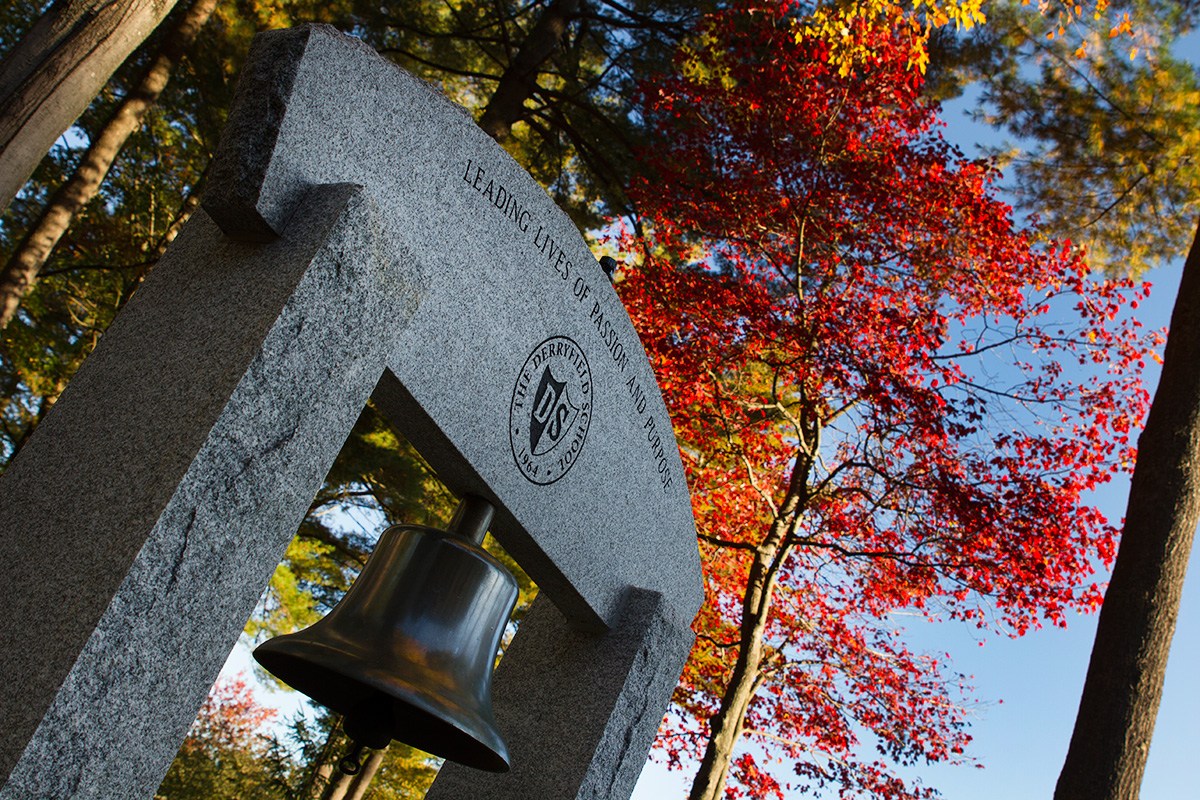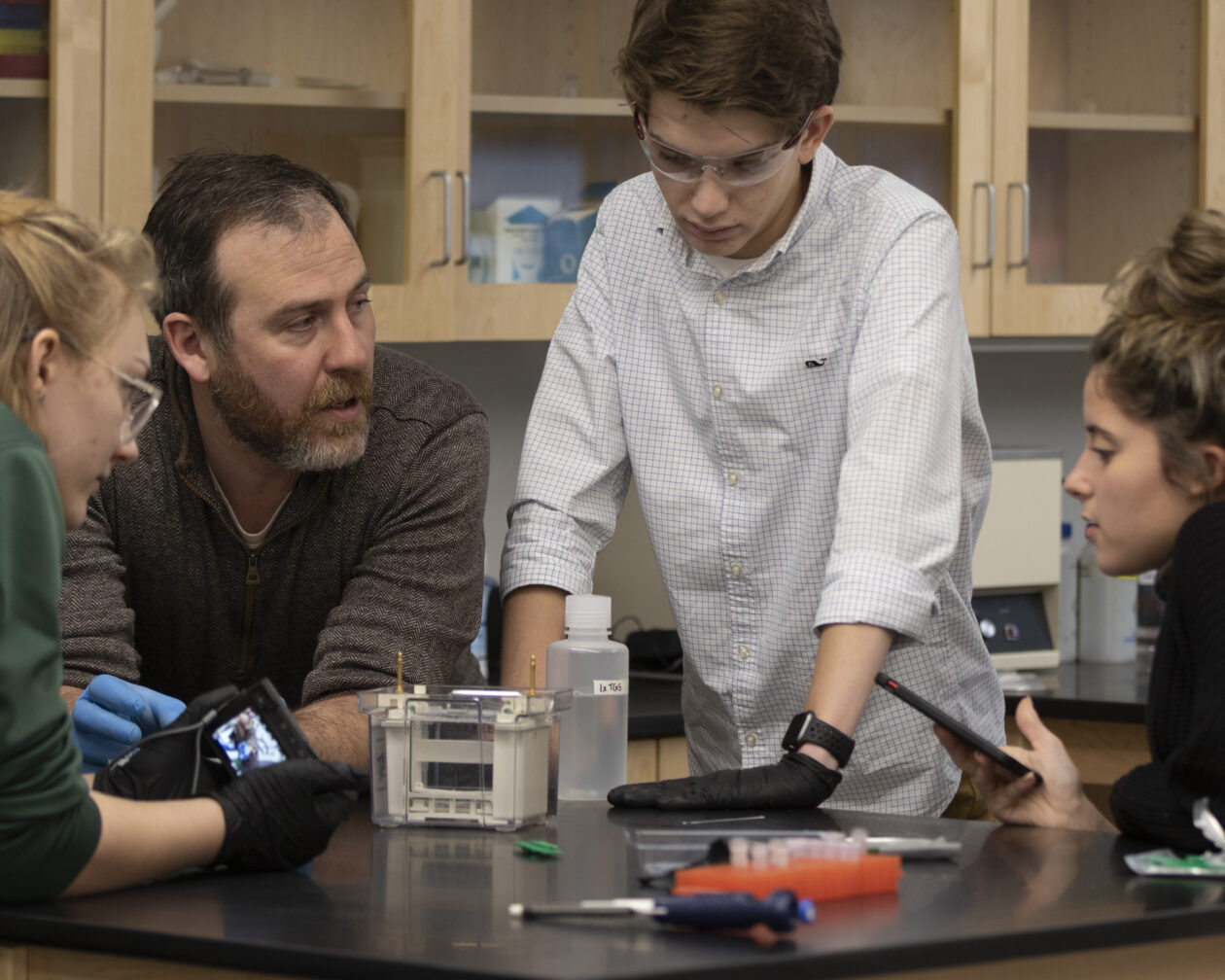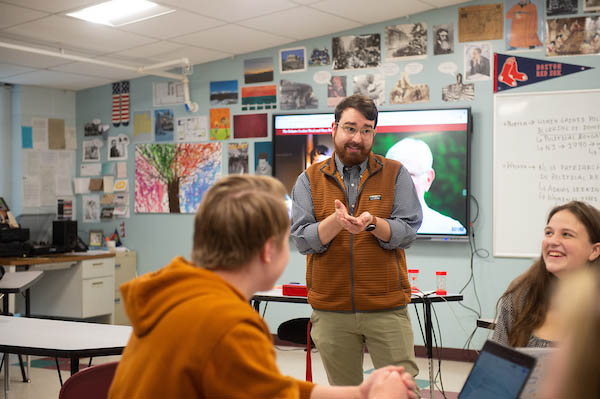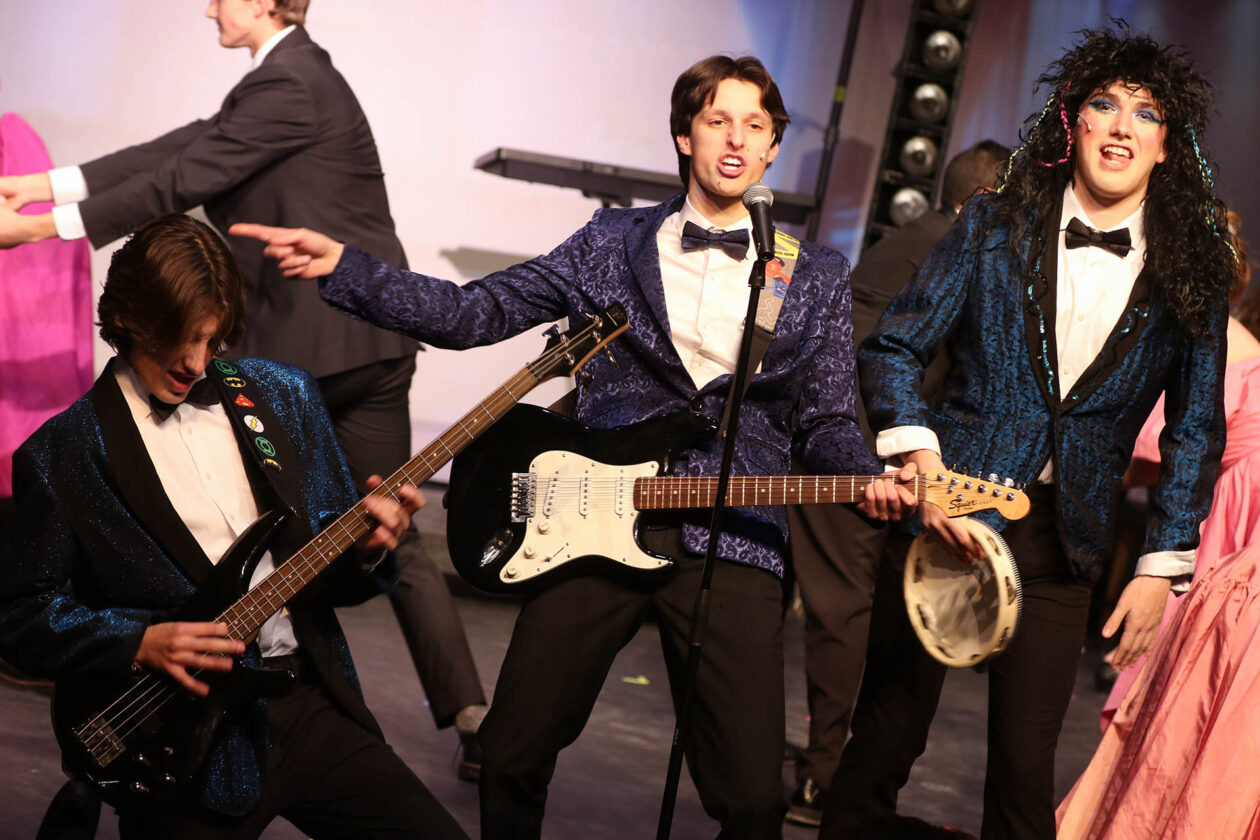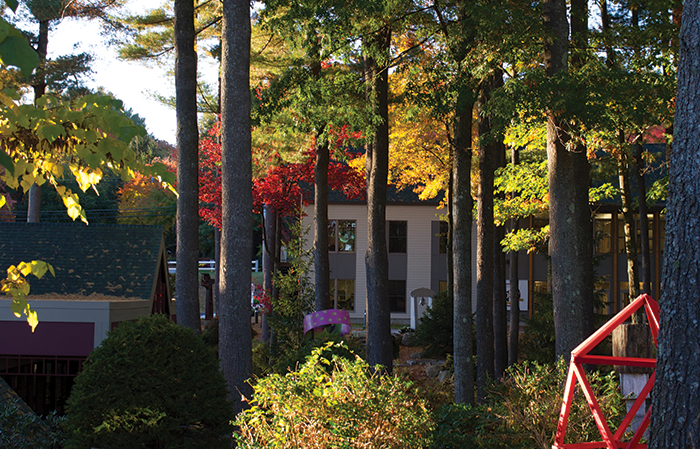Upper School Drama
The Philosophy
The mission of the Arts & Design department is to provide high quality mentorship, structure, and space that fosters bold creative expression, discovery, and applied design thinking within the Derryfield student experience.
Drama: Beginning Contemporary Acting (F)
Open to Grades 9-12
In this class, students will be introduced to the fundamentals of contemporary acting through the exploration of scene and monologue work. They will be introduced to the classic acting methods from Stanislavsky to Sanford Meisner and apply those methods to the various scenes they will be working on. At the end of the term, the students will present final scenes from the great American playwrights Horton Foote and Neil Simon.
Drama: Advanced Contemporary Acting (W)
Open to Grades 9-12
In this class, students will explore character and text analysis through the works of great American playwrights such as Arthur Miller, Tennessee Williams, Thornton Wilder, etc. They will learn how the playwright informs the actors about their characters by what the playwright says about them, what other characters say about them, and what the characters says about themselves. They will also learn proper text analysis, which will allow them to understand the critical operative words to stress. At the end of the term, the students will perform a final scene.
Drama: Acting Shakespeare (S)
Open to Grades 9-12
In this class, students will explore how to approach Shakespeare’s plays through the lens of the performer. They will explore proper scansion in order to make sense of the language in order to express the original intention of the playwright. They will learn to navigate through the text and phrase it in a clear and precise manner so that the listening audience will understand exactly what they are saying. Students will also explore how the text informs who the characters are. At the end of the term, the students will perform a scene from one of Shakespeare’s plays.
Public Speaking (F, W, S)
Open to: Grades 9-12
At some point or another, we are all called upon to speak in public, be it a commencement speech, an assembly, a business presentation, or a toast at a wedding. This course is designed to help those students seeking to improve their skill at speaking before a live audience by focusing on the techniques of voice and body control (breathing, intonation, volume, articulation, gesture, posture) that will give them the self confidence to deliver a successful speech. Students will learn the various forms of public speaking: informative, demonstrative, persuasive, and extemporaneous speeches, as well as learning the necessary skills for one-on-one and team debating. They will examine famous historical speeches and TED talks to decipher what makes a speech successful.
Students will experience writing original speeches and presenting them in a public forum. This course fulfills one third of the Arts departmental requirement. This course may be applied to English departmental graduation requirements in grade 12.
The Composition of Film (F, W, S)
Open to: Grades 9-12
Storytelling has been the lifeblood of civilization. The rules for telling those stories, however, changed forever with the advent of moving pictures. Students will look at the advancement in American filmmaking by viewing, analyzing, and critiquing some of the most important films that changed the techniques of how movies are made from such esteemed directors as Charlie Chaplin, Orson Welles, John Ford, Alfred Hitchcock and Martin Scorsese to the present day directors such as Kathryn Bigelow, Greta Gerwig, Spike Lee, and Jordan Peele. They will analyze how film narratives have changed as people of color and women have become major voices in Hollywood. This course fulfills one third of the Arts departmental requirement. This course may be applied to English departmental graduation requirements in grade 12.
Filmmaking (F)
Open to: Grades 9-12
In this course, students will have the opportunity to be their own directors, cinematographers, and producers, creating original works and telling myriad stories via the camera. They explore such genres as documentaries, commercials, music videos, and short films and learn the basic principles of how composition, camera angles, lighting, and sound create mood and tone. By using Adobe Premiere Pro, students will be able to edit their assignments into the final product that they envisioned. They will learn about scheduling a film shoot and all of the requirements that go along with that such as gathering talent, scouting locations, etc. At the end of the term, each student will have created their own five-minute film. This course is open to students with all levels of experience.
War in Film (W)
Open to: Grades 9-12
How is war depicted in movies? Is it glamorized, criticized, or satirized? When are movies used as propaganda and when are they used as a tool for soul searching? Do films influence the decision makers in Washington D.C.? Each generation tackles these and many other pertinent questions of what it means for their country to go to war. In the course “War in Film,” students will study Hollywood’s depiction of war by viewing essential and groundbreaking films from Hollywood’s greatest directors including Stanley Kubrick, Steven Spielberg, Francis Ford Coppola, and Kathryn Bigelow. This course fulfills one third of the Arts departmental requirement. This course may be applied to English departmental graduation requirements in grade 12.
American Comedy: A History in Film, Radio and Television (S)
Open to: Grades 9-12
Ever wonder why The Office makes you laugh? Will it still be funny to you in twenty years? Is comedy universal or is it generational? Are the Marx Brothers still funny? Would Stephen Colbert make
people laugh in the 1950s? In this course, we will examine and analyze the progression of comedy in American entertainment for the last 100 years from vaudeville to Tik Tok. Students will explore in detail how and why certain comedy was considered funny to audiences by putting it into its historical contexts. We will examine the politically and socially groundbreaking work of Lenny Bruce, Mort Sahl, George Carlin, and Richard Pryor and how comedy challenged censorship and our First Amendment rights, going all the way to the Supreme Court. At the end of the term, students will be able to clearly understand the role comedy has played in shaping American culture. This course fulfills one third of the Arts departmental requirement. This course may be applied to English departmental graduation requirements in grade 12.
